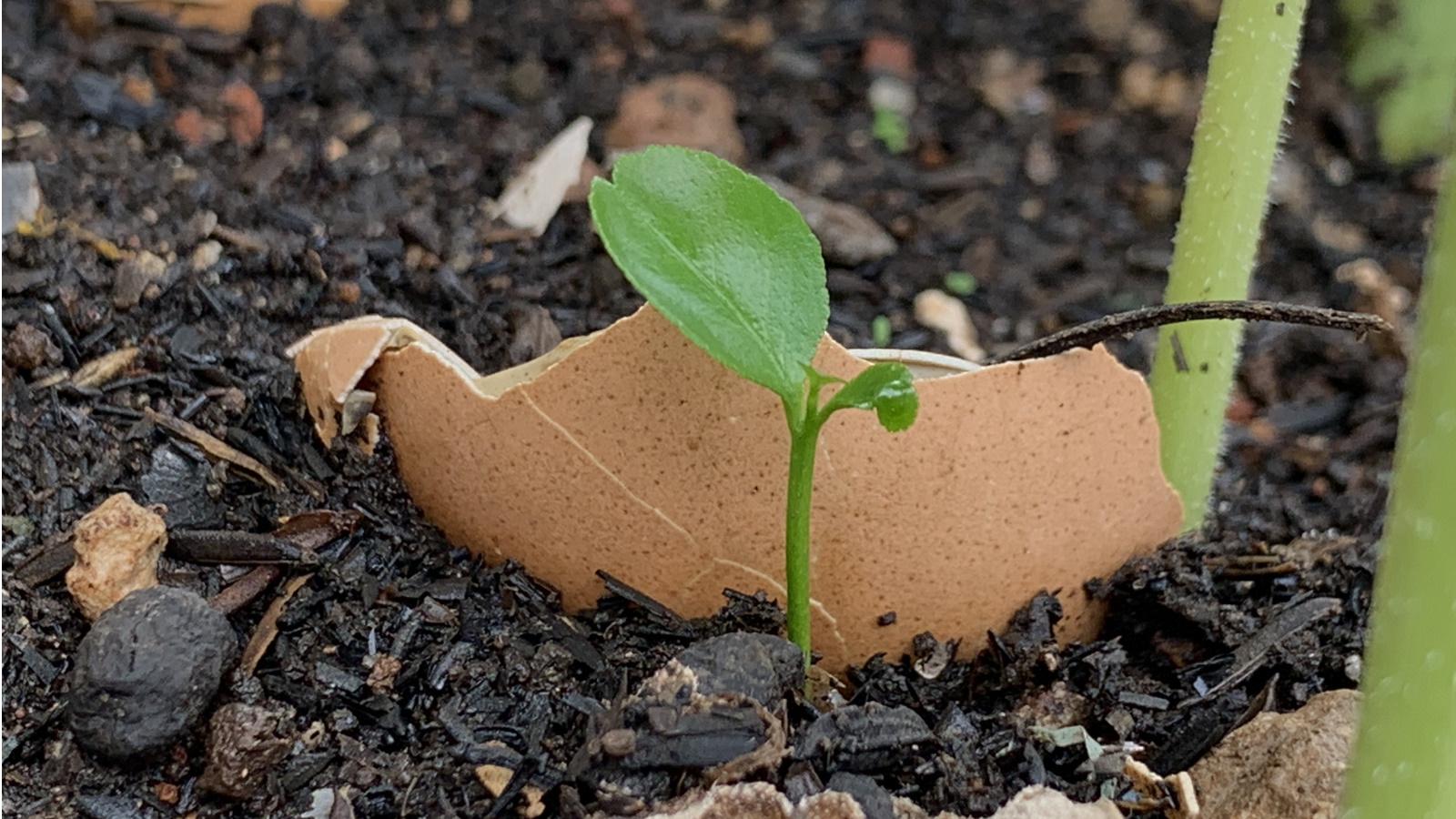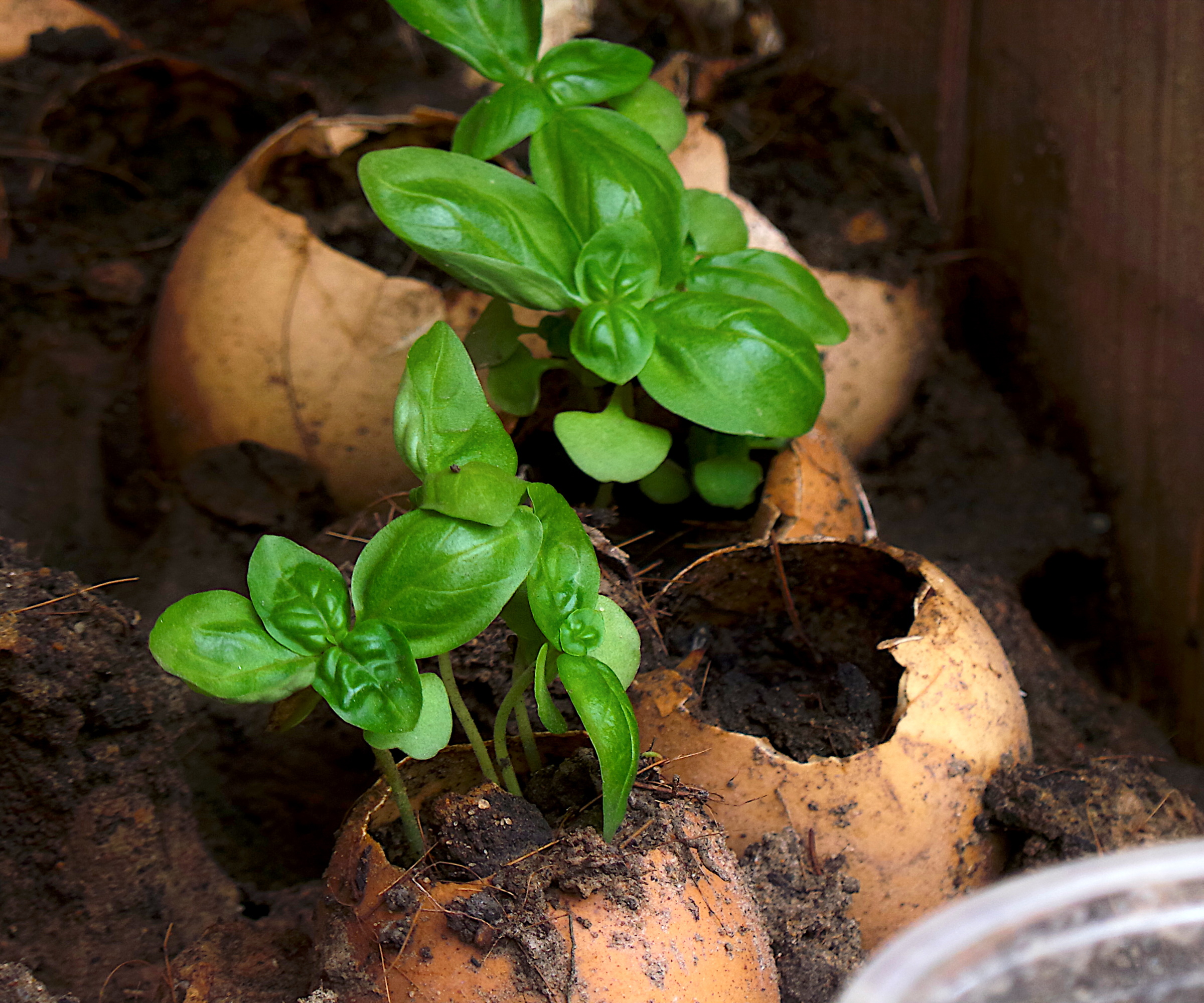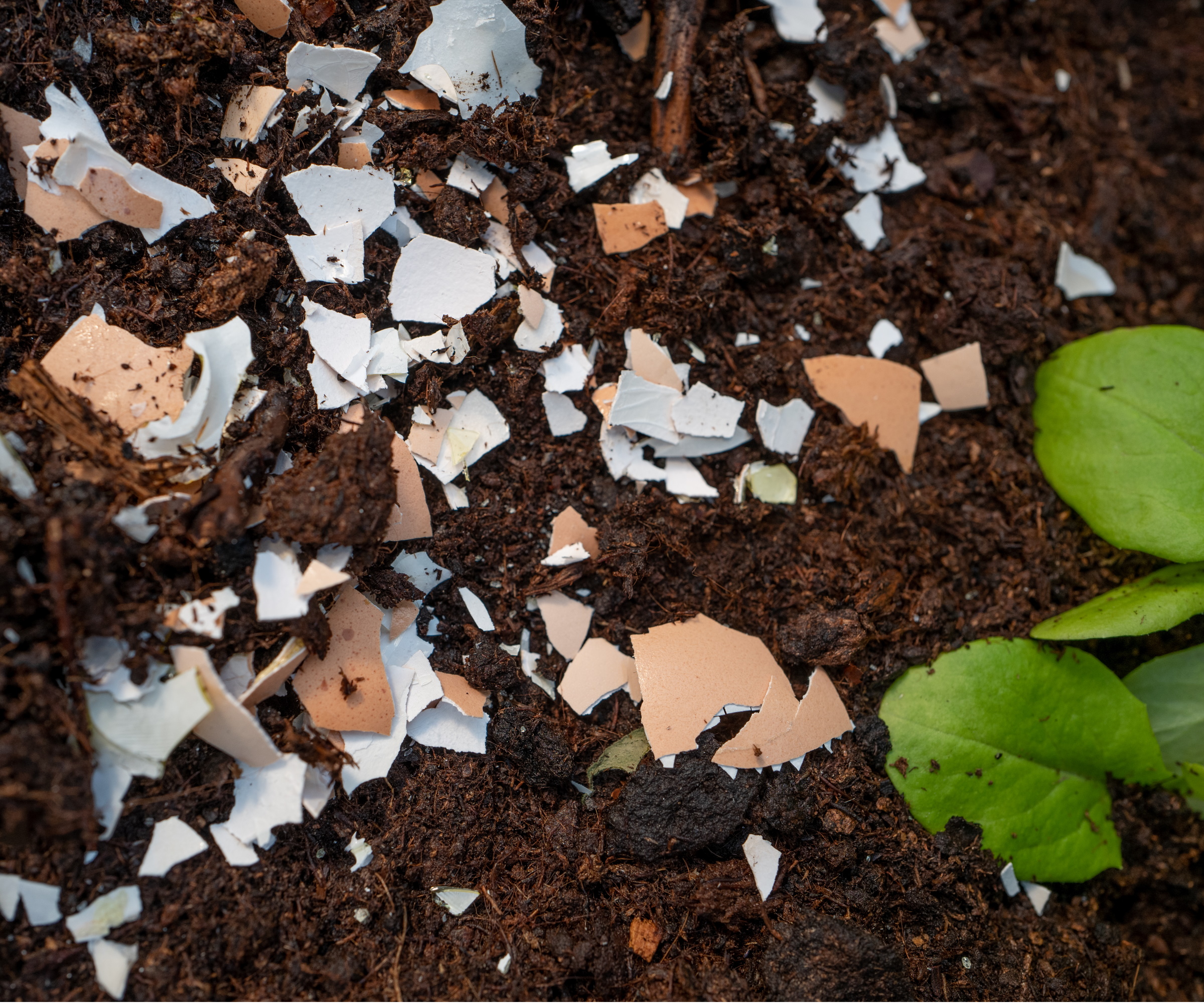
Want to cut down on food waste and help your outdoor plants thrive? Then you should be making the most of discarded eggshells.
There are lots of rumors when it comes to the benefits of using eggs in the garden, some of which are true and others that are exaggerated, so, are eggshells good for plants? Eggshells contain nutrients, such as calcium, that can be helpful to plants, and understanding how to use them correctly in your yard and garden can reap plenty of benefits. However, be aware that the rewards of using eggshells may not be huge or instantaneous.
We've spoken to experts to find out more about whether eggshells are good for plants and how you can use them effectively in your outside space.

Are eggshells good for plants?
In short, yes, eggshells are good for plants, but you should be wary that using them won't boost the overall health of your plants all on their own.

'Many claim that egg shells contain calcium which is good for the soil. While this is true, eggshells will only release that calcium after decomposing, which can take many months or even years,' says Diane Kuthy, the founder of How To Grow Everything.
The calcium from eggshells can help cultivate strong and healthy plants, encouraging growth of roots and stems. However, as Diane notes, it may take a long time for plants to reap this benefit after eggshells decompose.
'Eggshells also contain small amounts of other minerals like magnesium, phosphorus and potassium, which will enrich your soil further,' says Sally Allsop, founder of All That Grows.
Another benefit of using eggshells in the soil of your plants is that it can help with pests. 'Eggshells can help deter certain pests, including getting rid of slugs and getting rid of snails due to their sharp edges,' says Sally. 'But they may attract other pests like rats if not properly crushed and incorporated into the soil,' she warns.
Overall, it's important to not wholly rely on eggshells to provide nutrition to your plants. Nevertheless, it can be a good way to use your kitchen waste in a green and beneficial way.
How to use eggshells in your yard

There are a number of ways to use eggshells for plants.
'The most common is where gardeners crush them into small pieces and incorporate them into the soil,' says Sally. 'This helps improve soil structure, drainage, and aeration while slowly releasing nutrients as the shells decompose,' she adds.
Many gardeners have also chosen to make DIY seed trays from eggshells to grow seedlings in. 'If you sterilise your eggshells by boiling them for around 30 minutes, you can use them as little cellular pots to grow your seeds into,' says Sally. 'Then when your seedling is ready to be planted out, you can pop it, still in its eggshell into your garden,' she adds.
Because eggshells can take some time to decompose, Diane suggests using them in compost as a more effective method. 'The best ways to use eggshells is to compost them in a hot compost pile or feed them to your chickens,' she says.
It's a good idea to try using a fertilizer alongside eggshells to provide your plants with optimal nutrients.
Shop plant food online
An all-in-one solution. Easily feed all of your potted plants for up to 6 months.
Superior blend of fish bone meal, alfalfa meal, feather meal, soft rock phosphate and mined potassium sulfate.
Slow-release Nitrogen, Phosphorous, and Potassium, magnesium, and micronutrients in a controlled release prill.
FAQs
Can you use eggshells on indoor plants?
Eggshells can be good for plants by providing nutrients as they decompose. You can use them for indoor and outdoor plants alike by crushing them up and placing them in the soil. They will help promote growth as they decompose and provide calcium, among other nutrients, to your plants.
Eggshells can promote healthy growth of your plants by releasing nutrients as they decompose – so don't rush to throw them out with your everyday kitchen waste.
Just be aware that it may take some time, but it's still worth repurposing them in this way. For more sustainable gardening methods, you can also use your coffee grounds for plants to help boost the growth of your plants.







